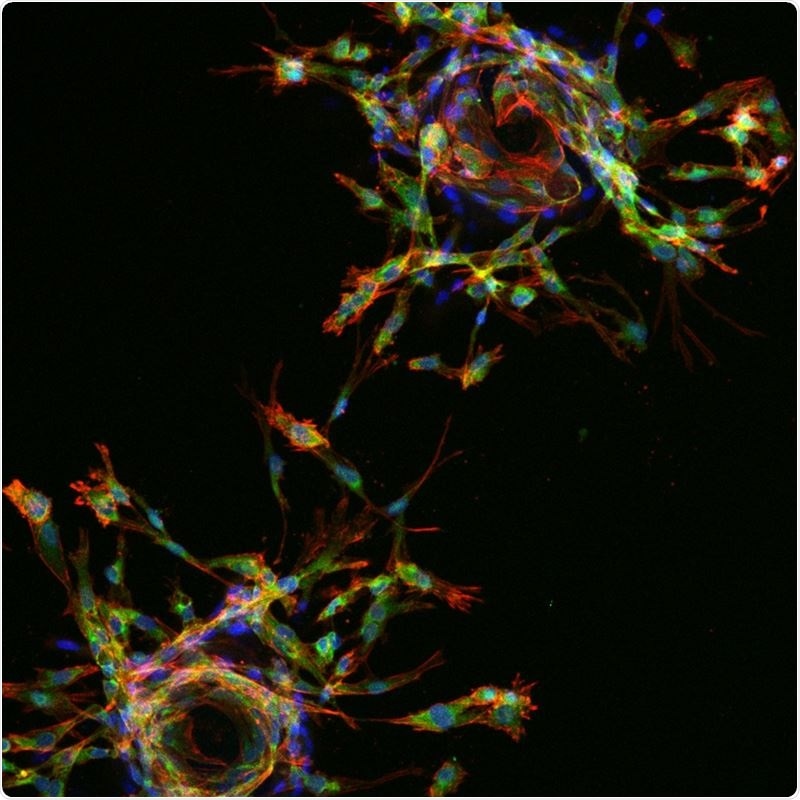A new study by researchers at the University of Eastern Finland provides novel insight into the previously unknown effects of factors regulating blood vessel formation. In the study, bone morphogenetic factor 6, i.e. BMP6, was shown – for the first time - to regulate blood vessel formation via vascular endothelial growth factor receptor 2 (VEGFR2) and Hippo signalling pathway. The findings can be used in developing treatments for cardiovascular diseases.

Cardiovascular diseases are the leading cause of death in the Western world. In many of these diseases, blood circulation is decreased due to narrowed blood vessels, leading to inadequate tissue perfusion and oxygen deprivation. The formation of new blood vessels offers a novel treatment option for these diseases. The development of this treatment requires a thorough understanding of cellular signalling mechanisms that regulate neovessel formation.
Bone morphogenetic proteins, BMPs, are growth factors originally discovered as regulators in bone formation. Later on, their regulatory role on the development and maintenance of a wide range of tissues has become apparent. BMPs have a vital role in the development of the cardiovascular system. In addition, BMPs have been shown to regulate blood vessel formation but their exact mechanisms are unknown. Crosstalk of BMP-signalling with a well-known blood vessel formation regulator, VEGF, and its downstream effectors is poorly understood.
The new study now shows that VEGF gene transfer or oxygen deprivation of the tissue induce the expression of BMPs. Bone morphogenetic factor 6 ligand was further demonstrated, for the first time, to regulate blood vessel formation. BMP6 was shown to act in endothelial cells via VEGFR2 and Hippo signalling pathways by inducing nuclear localization of Hippo signalling pathway mediator TAZ. Hippo signalling has an important role in tissue size control and cell proliferation, and its malfunction has been associated with cancer.
The findings from this research improve our understanding of multifactorial communication of cell signalling pathways in blood vessel formation. The discoveries related to BMP6 and Hippo signalling can be used in the development of novel treatments for cardiovascular diseases.  
The study, openly accessible in Angiogenesis, was carried out in the Vascular Biology junior research group of Academy Research Fellow, Adjunct Professor Johanna Laakkonen at the A.I. Virtanen Institute for Molecular Sciences. The main authors of the article, Heidi Pulkkinen, MSc, and Miika Kiema, MSc, are Early Stage Researchers in the Doctoral Programme of Molecular Medicine at UEF. Understanding how the cell types interact in vascular diseases is one of the central research interests of the Laakkonen junior research group. The group’s goal is to implement these discoveries for improved treatment and diagnosis of cardiovascular diseases.
The newly published study is supported by the Academy of Finland, the European Research Council, Sigrid Juselius Foundation and the Finnish Foundation for Cardiovascular Research. The article is part of a project that has received funding from the European Union's Horizon 2020 research and innovation programme under the Marie Skłodowska-Curie grant agreement.
Source:
Journal reference:
Pulkkinen, H.H., et al. (2020) BMP6/TAZ-Hippo signaling modulates angiogenesis and endothelial cell response to VEGF. Angiogenesis. doi.org/10.1007/s10456-020-09748-4.